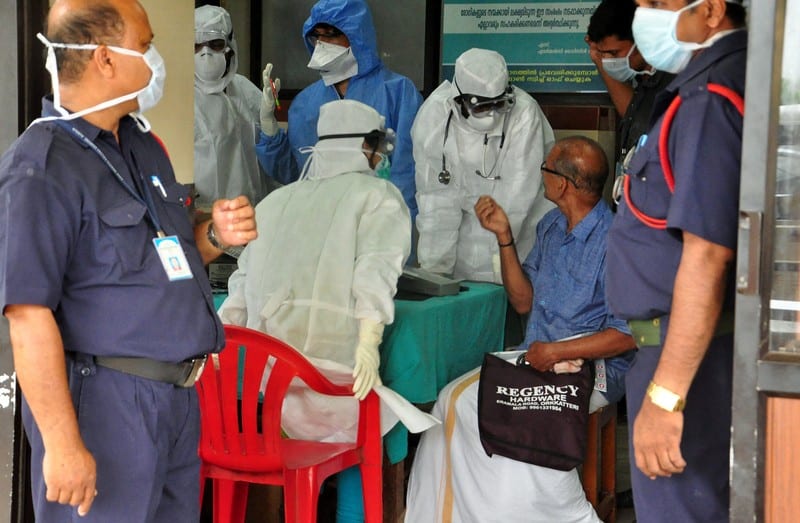By Ben Hirschler
LONDON (Reuters) – A global coalition set up a year ago to fight epidemics has struck a $25 million deal with two U.S. biotech companies to accelerate work on a vaccine against the brain-damaging Nipah virus that has killed 12 people in India.
The Coalition for Epidemic Preparedness Innovations (CEPI) said on Thursday that Profectus BioSciences and Emergent BioSolutions would receive up to $25 million to advance development and manufacturing of a shot for the bat-borne disease.
There is currently no vaccine or treatment to tackle Nipah, which has a mortality rate of around 70 percent.
The death toll from the latest outbreak in Kerala rose to 12 on Thursday, following the death of a 61-year-old man who had already lost three members of his family, including his two sons, to the virus.
Indian officials said they were awaiting blood test results from a further 16 patients suspected to have the infection.
The experimental vaccine being developed by the biotech companies has produced promising results in animal tests, following more than 15 years of research by scientists at the U.S.-based Uniformed Services University of the Health Sciences.
Based on data so far, Christopher Broder, one of the main researchers behind the project, said the Nipah vaccine in development was also “highly likely” to work against the related Hendra virus.
Experts believe both Nipah and Hendra are spread by flying foxes – bats of the genus Pteropus – with humans becoming infected by exposure to bat urine and saliva on fruit, or from infected pigs and horses. It can also spread person-to-person.
Outbreaks of Nipah occur annually in Bangladesh and 105 people died from the virus in Malaysia 1999, when more than a million pigs were slaughtered to stem its spread.
Still, Nipah remains a relatively rare tropical disease – like Ebola – which severely limits the incentive for drug companies to invest in vaccines or drugs.
It was the slow response to West Africa’s 2014-2016 Ebola outbreak, which killed more than 11,300 people before an effective vaccine was developed, that prompted the launch of the CEPI coalition in January 2017.
The group, which sees itself as a global insurance policy against epidemics, is funded by Norway, Germany, Japan, the Bill & Melinda Gates Foundation and the Wellcome Trust.
Nipah is on the World Health Organization research and development priority list alongside Ebola, Zika, MERS, Lassa and Crimean-Congo hemorrhagic fever.
(Additional reporting by D. Jose in Kochi and Zeba Siddiqui in Mumbai; Editing by Edmund Blair and Alexandra Hudson)



